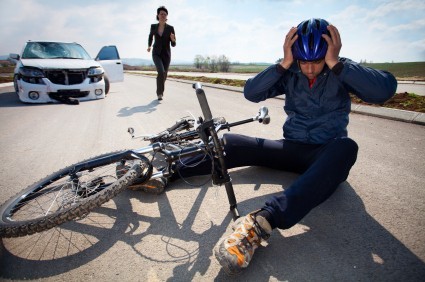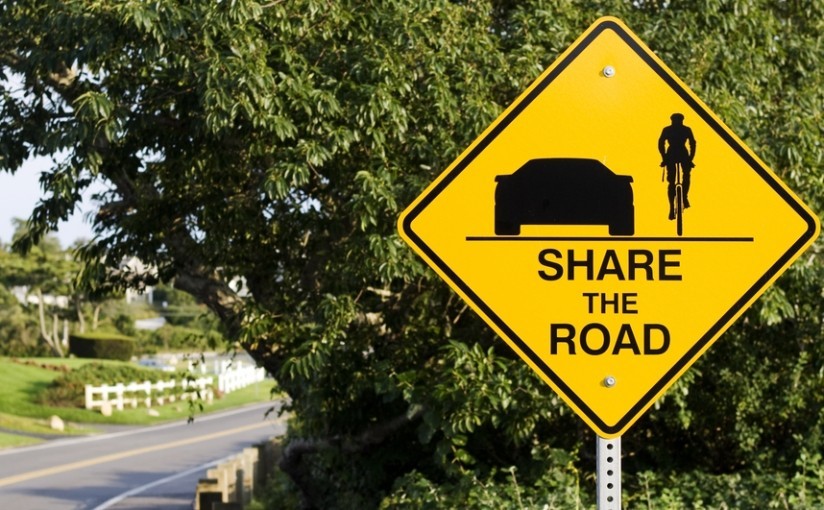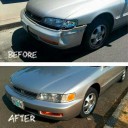Bicycle Safety Tips

Bikes and Cars Traveling Together Safely...It Could Happen
Every year during summer, more and more bicyclists hit the roads of America—young and old, male and female, and with varying levels of safety knowledge. Nationally, the most accidents involving cars and bicyclists happen during the summer months, so it's absolutely necessary to be more vigilant and careful during the months of June, July and August. Whenever a car and a bike enter into any type of collision, the car usually wins. With today’s faster and more powerful cars, a bicyclist is even more at risk, and because we strongly believe that we must do our part to help prevent these types of crashes, here are some useful suggestions from St. Helens Auto Body in Saint Helens, OR about how bicycles and cars can live together in harmony during the summer.
Here are some rules of the road and preventative measures that you can adapt to in order share the road and make it safer for both drivers and bicyclists.
Hey—It’s the Right of Way
While bicycle right-of-way laws vary state-to-state, some of the universal regulations are:
- A bicyclist has the right of way in a bike lane. An automobile may not travel in a bike lane and can only cross it at designated locations.
- If there is no bike lane, a bicyclist should travel as close to the right side of the lane as is safely possible.
- If traveling to the right side of the lane isn’t achievable, a bike has the right of way to the full lane.
- If a bicyclist is in a lane where it’s too narrow for a car to pass with three full feet of space, the bicyclist can take the lane.
So while you might not fully appreciate the fact that a rider is going 15 mph and taking up the entire lane, they have every right to do so. Just relax and take a nice breath, or better yet—turn on some music and use it to unwind.
 The Rules of Passing
The Rules of Passing
- The minimum distance you need to allow when passing a bicycle on the road is three feet.
- You should always give bike riders as much room as possible, so give them a width berth and keep your eyes on them while they’re near. Check for oncoming traffic and for any approaching impediments that might cause the rider to swerve more into the center of the lane.
- Pay extra care when passing near an intersection or when you are about to make a right turn. The rider could be going in a straight line and not have time to react to your turn. Cutting them off could easily make them lose control of their bike in an attempt to avoid a collision, or not give them sufficient time to avoid crashing into the side of your car.
Beware Swinging Doors
- If you’re parking on a busy street, double-check your mirrors for bikes, as well as cars. They can be difficult to see in many cases, but making the effort could save a life or two.
ABW: Always Be Aware
- As with any other driving scenario, being aware of your surroundings while driving around Saint Helens is critical to prevent bicycle-related accidents. Put down that smart phone and reduce distractions. Keep an eye out for low-profile vehicles (bikes, scooters and motorcycles) and pedestrians.
Most accidents involving bicyclists are preventable if you’re paying attention. So, keep your head on a swivel and anticipate the unexpected. Don’t disregard bicyclists, because they also deserve a right to be traveling on our roads for work or just for fun. Drive safely and be aware, brought to you by St. Helens Auto Body, one of the nation’s finest collision repairers and a true advocate of every aspect of driving safety.









 The Rules of Passing
The Rules of Passing
Social